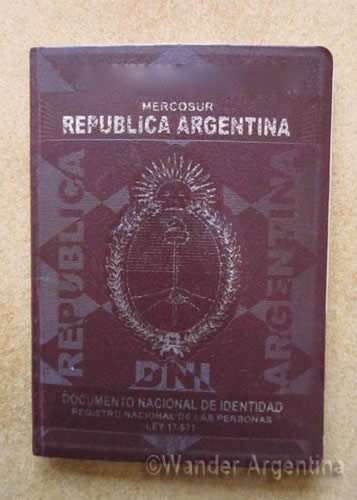 Landing a job as an English teacher in Argentina can vary from quick and easy to almost impossible. Young, attractive females with a clear American or British accent will likely be inundated with job offers. Those who don’t fit into this bracket may not find it quite so simple, although experience, a teaching certification and schedule-flexibility are big pluses.
Landing a job as an English teacher in Argentina can vary from quick and easy to almost impossible. Young, attractive females with a clear American or British accent will likely be inundated with job offers. Those who don’t fit into this bracket may not find it quite so simple, although experience, a teaching certification and schedule-flexibility are big pluses.
The best time to job-hunt is around March when the school year begins.
There is certainly no shortage of English-hungry students who are willing to pay for classes in Argentina, especially Buenos Aires.
Bear in mind that ‘English school’ or ‘institute’ can mean anything from an internationally recognized organization to a shady home-based business that simply connects students with teachers and take a generous cut for the trouble.
Most foreign English teachers in Buenos Aires work under the table (or en negro) for one of the many ‘institutes.’ Don’t be too worried about the actual legalities — there are quite a few English institutes that are entirely legitimate but hire under the table. If they’re not bothered with the legal details, why should you be?
Problems with this arrangement can arise though, particularly when working conditions are unclear or employers take advantage of the informality of the arrangement.
The value of having a trustworthy and reliable employer should not be underestimated and one of the best ways to determine this is to ask lots of questions at the interview.
The single most important question is not “Will they hire me?” but, “Do I want to work here?”
First impressions – pre-interview
Don’t be fooled by an English Institute’s flashy website. As with most businesses in Argentina, the appearance of a school’s web page usually has absolutely no bearing on their efficiency or reputation. What can be more useful pre-interview is to look on expat forums to see if anything has been written about the school. Generally, no news is good news. Additionally, take notice if the school is constantly advertising jobs on forums such as Craigslist or Couchsurfing. Perhaps they are just starting up and on a recruitment drive but if this trend is long lasting be cautious — high staff turnover is never a good sign.
Your CV or resume
Just because a teacher has sent their resume to an institute and been offered an interview does not mean the interviewer has actually read the resume. Be prepared to answer basic questions that you’ve already outlined on paper. It is also a good idea to bring an extra copy as sometimes the interviewer has forgotten to print it out/the printer is broken/the internet is down.
If the interviewer has managed not only to print the CV but also shows signs of having read it, that is a postive sign. This demonstrates that they are interested in their staff, or at least aware of the need to hire decent teachers.
Pay
Never be shy in asking how much an English institute is going to pay. With Argentina’s roller-coaster economy the going rate varies considerably from year to year. It is best to do some research to find out how much you should expect. Ask other teachers and interview at a variety of institutes to get a better idea.
It is also important to ask if the pay rate is likely to rise anytime soon. Is there a probationary period where the hourly rate will increase after a set time? Does the company increase pay to combat inflation? Even the best schools cannot keep up with galloping price increases but a token pay rise every now and again is a welcome gesture. After all, the price of the classes probably goes up a few times a year, why not your pay too?
Another important point to consider is how you receive your wages. Many schools pay cash in hand every month. Find out when and where this happens. Some institutes will expect teachers to travel to an office they don’t usually go to (for some reason often in the northern suburb of Olivos) to collect their pay. This is clearly a hassle for those who live on the other side of town.
It is not unheard of for teachers to get paid late. This is not uncommon in Argentina and local teachers are generally subject to the same problem, although they may get priority over foreigners. If possible, talk to current employees to suss out if the company pays on time.
Some institutes pay by check, which can be cashed in a bank with ID. Be sure to look at the date on the check, to ensure it’s not post-dated. Be aware that long lines at the bank and limited operating hours (most banks close at 3pm) can make this an arduous process.
Holidays
It is also vital to enquire about the policy of holidays. Vacation pay is generally non-existent for under the table English teachers, but this means time-off is also flexible. Check how much advance notice is expected to take an unpaid holiday during the term.
Be aware that most institutes close during January and February and half of both December and March, so plan accordingly. Argentina also has a large number of national holidays or feriados a year, which are usually unpaid. It may seem like a nice idea to have 17 days off a year but when you’ve got no money to enjoy them, they become more of a hindrance than a cause for celebration. Is an attempt made by the institute to make up classes that fall on feriados?
Don’t forget to also inquire about the policy for missed classes. Is there a cancellation policy whereby if a student cancels within 24 hours they still have to pay? Do you get paid if no one turns up to your class? What happens if your student is on holiday or travelling? It’s all very well having a wealthy student with money for classes, but if they’re in Europe half the time it can make it difficult to receive a steady paycheck.
Sick pay and health insurance will most likely not be offered, but it’s always worth asking.
Paperwork
If the institute does offer to help you get your working visa, check if they are going to pay the application costs, or if they provide help with the long and often confusing process of actually getting the visa.
It is not unheard of for schools to promise help and then provide nothing. If a school does offer you this service, try and probe into what kind of assistance this actually entails and when it will happen. If they start talking about birth certificates and police checks, you’re probably on the right track.
Some companies, although hiring you illegally, may require you to get a CUIT or tax number. If this is the case, be sure to find out if they will help you to do so. Some institutes will ask you if you have a friend whose CUIT number you can ‘borrow.’ Be aware that Argentines may not want to share their number with you, as this may push them into a higher tax bracket.
— Rosie Hilder



[…] Click here to continue reading. […]